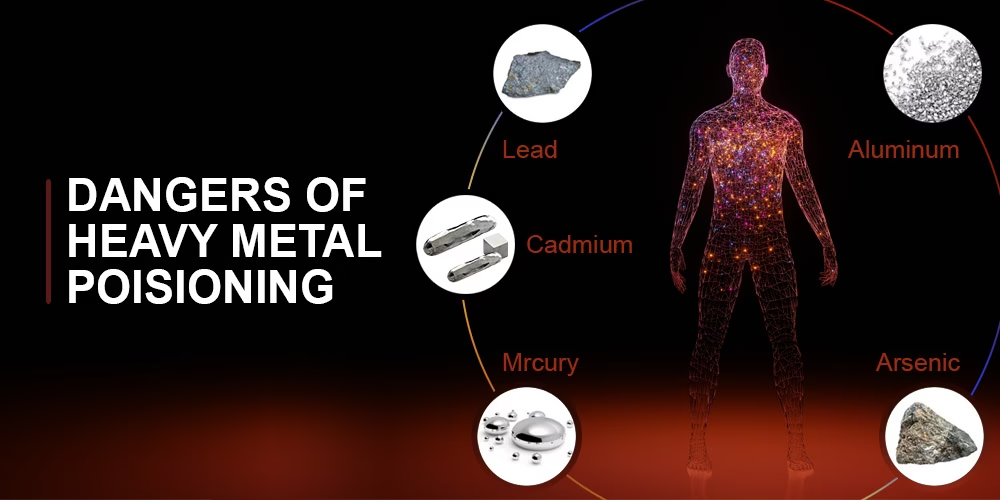Heavy metals, such as lead, mercury, arsenic, cadmium, and chromium, can have harmful effects on the human body even at low concentrations. Here are some key impacts of heavy metals on human health:
- Lead (Pb):
- Neurological effects: Lead exposure, particularly in children, can cause developmental delays, learning difficulties, and reduced IQ. In adults, it can cause memory problems, cognitive impairments, and mood disorders.
- Kidney damage: Prolonged exposure to lead can impair kidney function, leading to kidney disease.
- Cardiovascular problems: It may contribute to hypertension (high blood pressure) and increase the risk of heart disease.
- Mercury (Hg):
- Neurological damage: Mercury affects the central nervous system, leading to symptoms such as tremors, memory loss, mood swings, and cognitive impairment.
- Kidney damage: Chronic exposure to mercury can result in kidney dysfunction.
- Respiratory problems: Inhalation of mercury vapors can damage the lungs and lead to respiratory distress.
- Arsenic (As):
- Cancer: Arsenic is a known carcinogen, and long-term exposure can increase the risk of skin, lung, bladder, and liver cancers.
- Skin changes: Chronic exposure can cause skin lesions, pigmentation changes, and thickening of the skin.
- Cardiovascular and respiratory issues: Arsenic exposure is linked to heart disease, high blood pressure, and respiratory problems.
- Cadmium (Cd):
- Kidney damage: Cadmium accumulates in the kidneys and can cause renal failure over time.
- Bone damage: Long-term exposure can lead to osteoporosis and other bone diseases.
- Cancer risk: Cadmium is a carcinogen and may contribute to lung cancer, particularly in people who smoke.
- Chromium (Cr):
- Lung cancer: Chromium, particularly hexavalent chromium, is a known cause of lung cancer.
- Skin irritation: Prolonged skin exposure to chromium can cause rashes, ulcers, and allergic reactions.
- Kidney and liver damage: Chronic exposure to chromium can harm the kidneys and liver.
Mechanisms of Toxicity:
Heavy metals can interfere with various biochemical processes in the body. They can:
- Bind to enzymes, disrupting normal metabolic functions.
- Accumulate in tissues and organs, causing long-term damage.
- Generate free radicals, leading to oxidative stress and cellular damage.
- Disrupt the function of the nervous system and other organs by binding to essential proteins and interfering with cellular signaling.
Sources of Exposure:
- Environmental: Contaminated water, air pollution, and food (especially seafood).
- Occupational: Certain industries such as mining, manufacturing, and construction.
- Consumer products: Some cosmetics, batteries, and paints.
Prevention:
Regulation and monitoring: Ensuring safe limits of heavy metals in environmental and consumer products.Blog Content
Water treatment: Filtering water to remove heavy metals.
Dietary precautions: Avoiding food contaminated with heavy metals, such as fish with high mercury levels.



